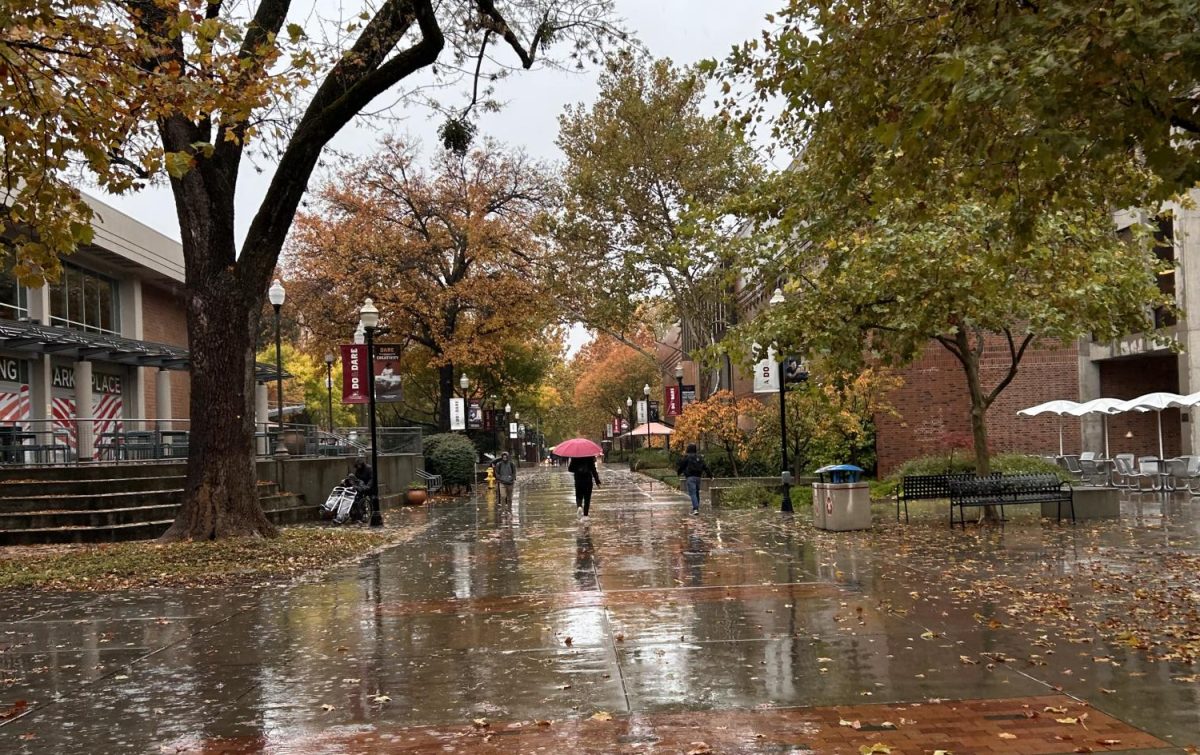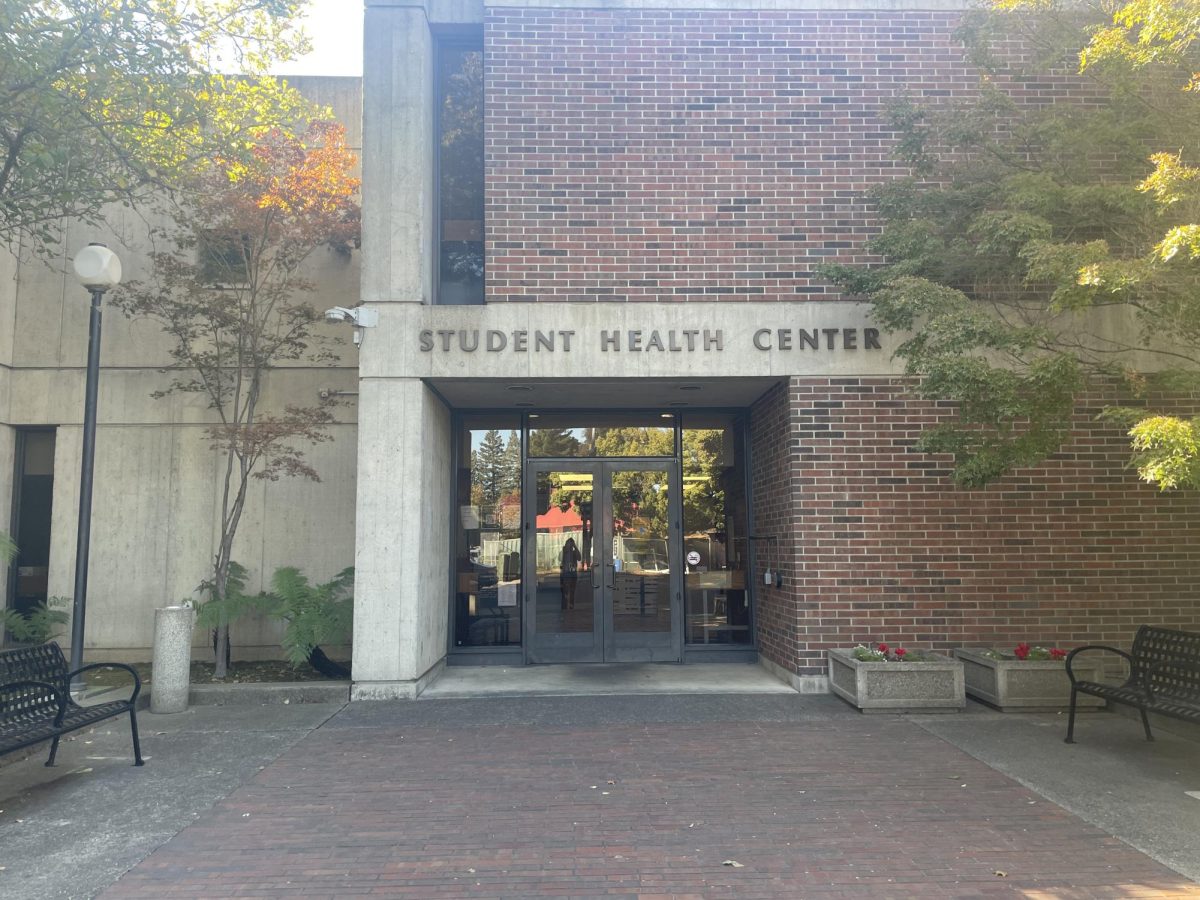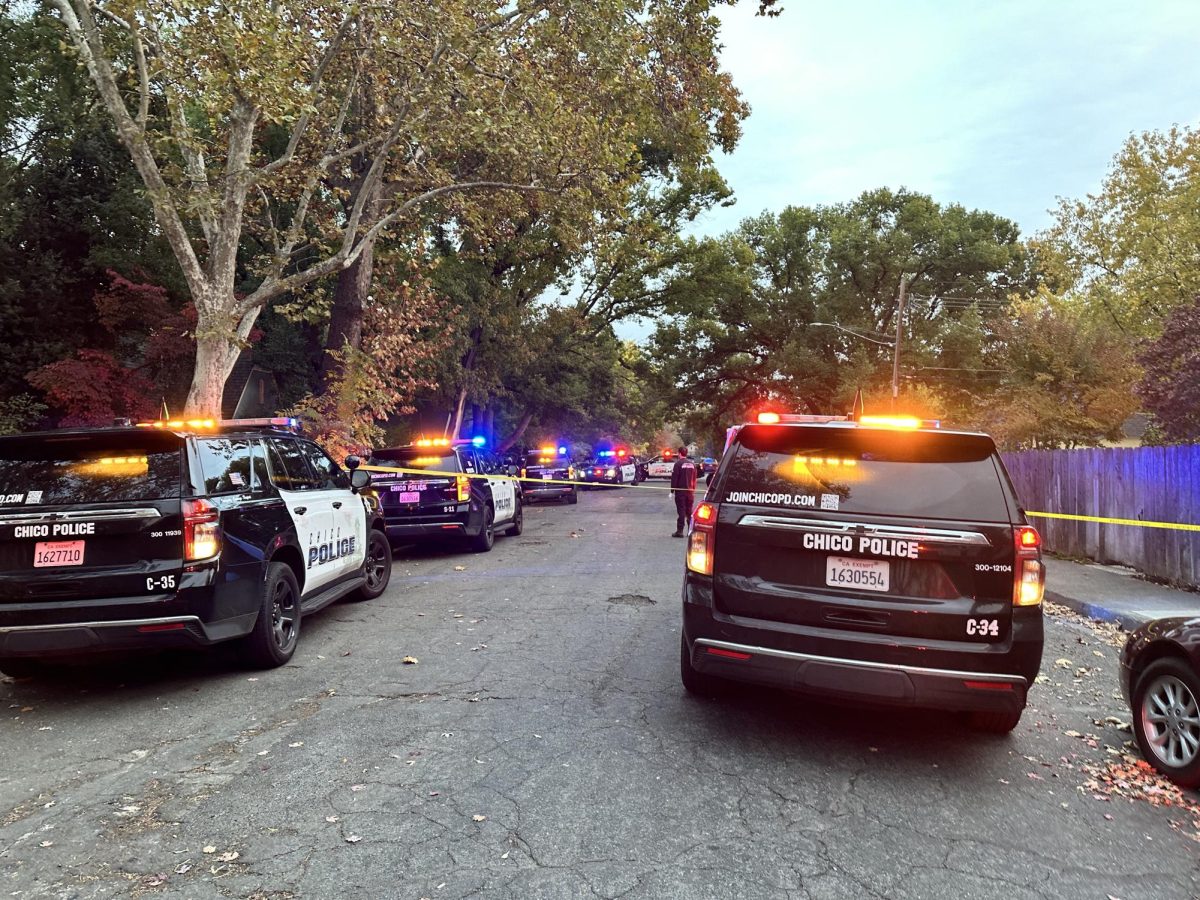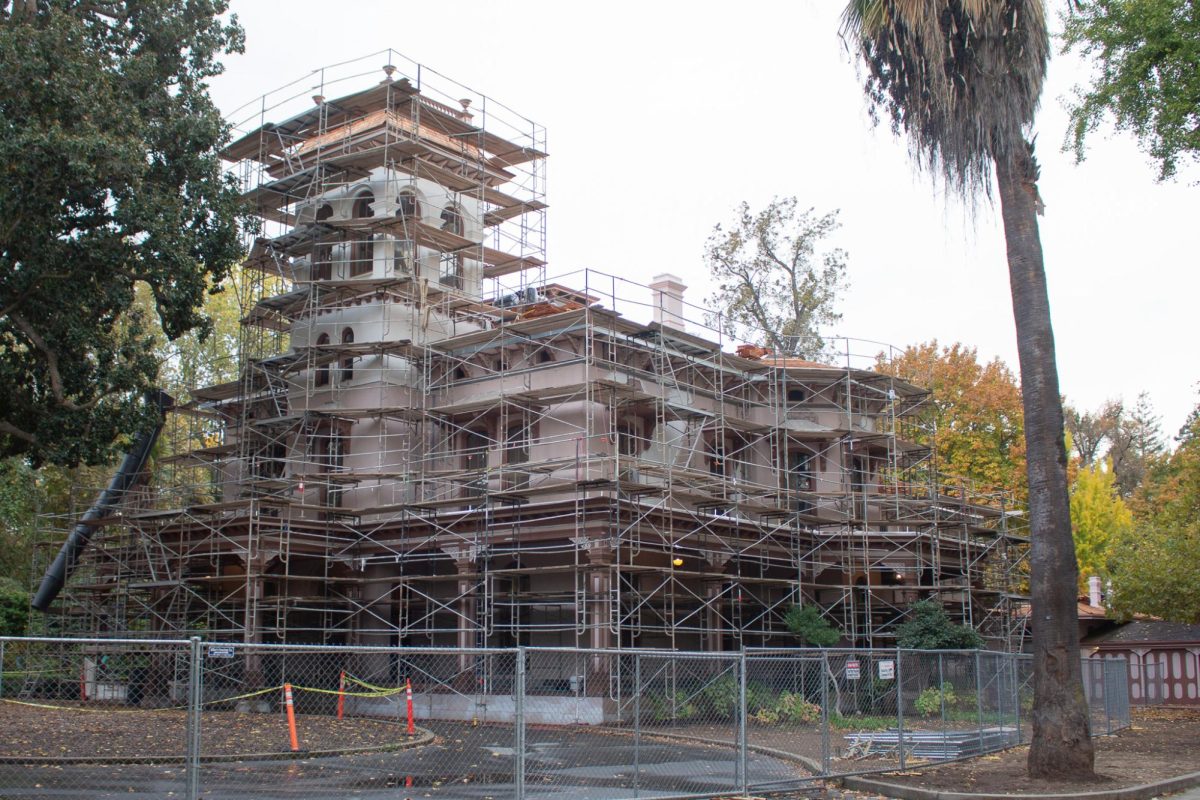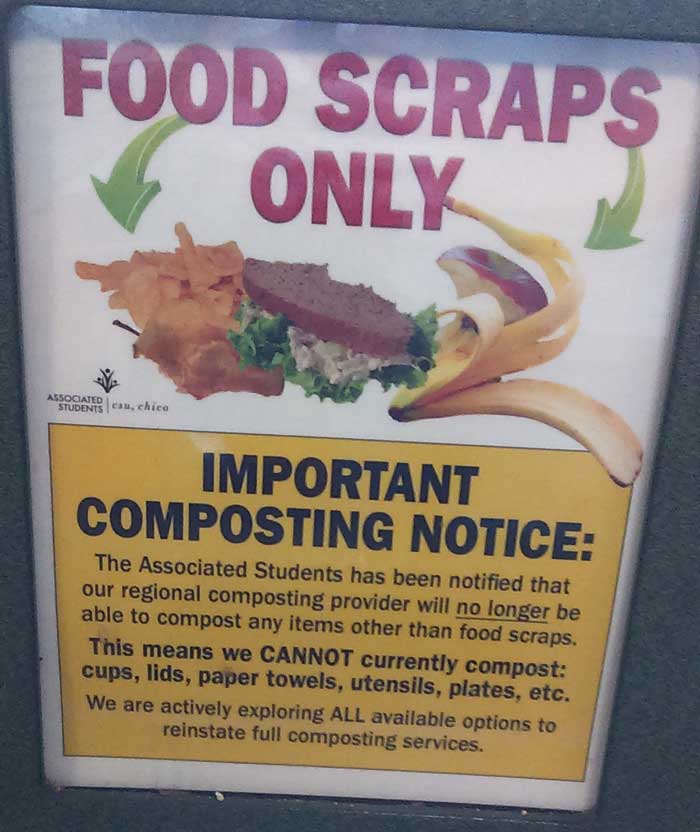
Chico State’s composting efforts have recently undergone a cutback. Biodegradable cups, lids and plates are no longer being composted at dining centers throughout campus.
The change came along with the new company put in charge of composting, said Janessa Mostow, assistant sustainability coordinator at Chico State.
“We are just going to a different company now,” Mostow said. “And this company is only accepting food scraps.”
Chico State switched its composting services to save money. Previously, composting had to be trucked in in order to compost both food and biodegradable containers.
The closest company that does that is now in Sacramento, so the compost would have to be driven there.
“It’s really expensive to have someone drive all the waste and composting materials to Sacramento,” she said.
Some students are disappointed to see composting efforts take a cutback. Josh Katzki, sophomore business information systems major, sees it as a step in the wrong direction.

“It’s a shame that Chico had to reduce its composting program for financial reasons,” Katzki said. “It always seemed like a point of pride for the school how green we are, and now we’re moving away from that.”
The new company can only compost food because it mixes all the scraps together which are then fed to farm animals. This is why the company doesn’t accept biodegradable plastic and cardboard, Mostow said.
The cutback means that food needs to be scraped into compost bins while plates are thrown in the trash. Before the company switch, both plates and food could be thrown in the compost bins.
Although there are signs on compost bins instructing students to scrape food off, some are still throwing plates in, Mostow said.
“It seems like students just don’t care about what’s going on,” Mostow said. “It’s probably going to affect us a lot until we can make sure that everyone is scraping off their food.”
If a compost bin has things like plates mixed in, it can’t be composted. The trash bag will be disposed of because the new company won’t separate other items out, she said.
As for the impact this cutback will have on Chico State’s goal of becoming a zero-waste campus, Mostow said it’s too early to know the scope of impact.
“It’ll definitely affect the zero-waste, especially if we can’t get students to actually scrape their plates, which can be a bit of a hassle,” Mostow said. “I’m not sure how bad it’s going to be. It may not be that bad at all, it could be really bad.”
In the meantime, diners across campus will continue to use biodegradable containers, even though they won’t be composted.
This restriction shouldn’t last more than a year, Mostow said. The new company is working on expanding its composting capability, and Chico State has the option of finding a new composter.
“We’re hoping for one year max of scraping the food,” Mostow said. “We should go back to plates and cups being accepted as well.”
Austin Herbaugh can be reached at [email protected] or @aherbaugh14 on Twitter.





